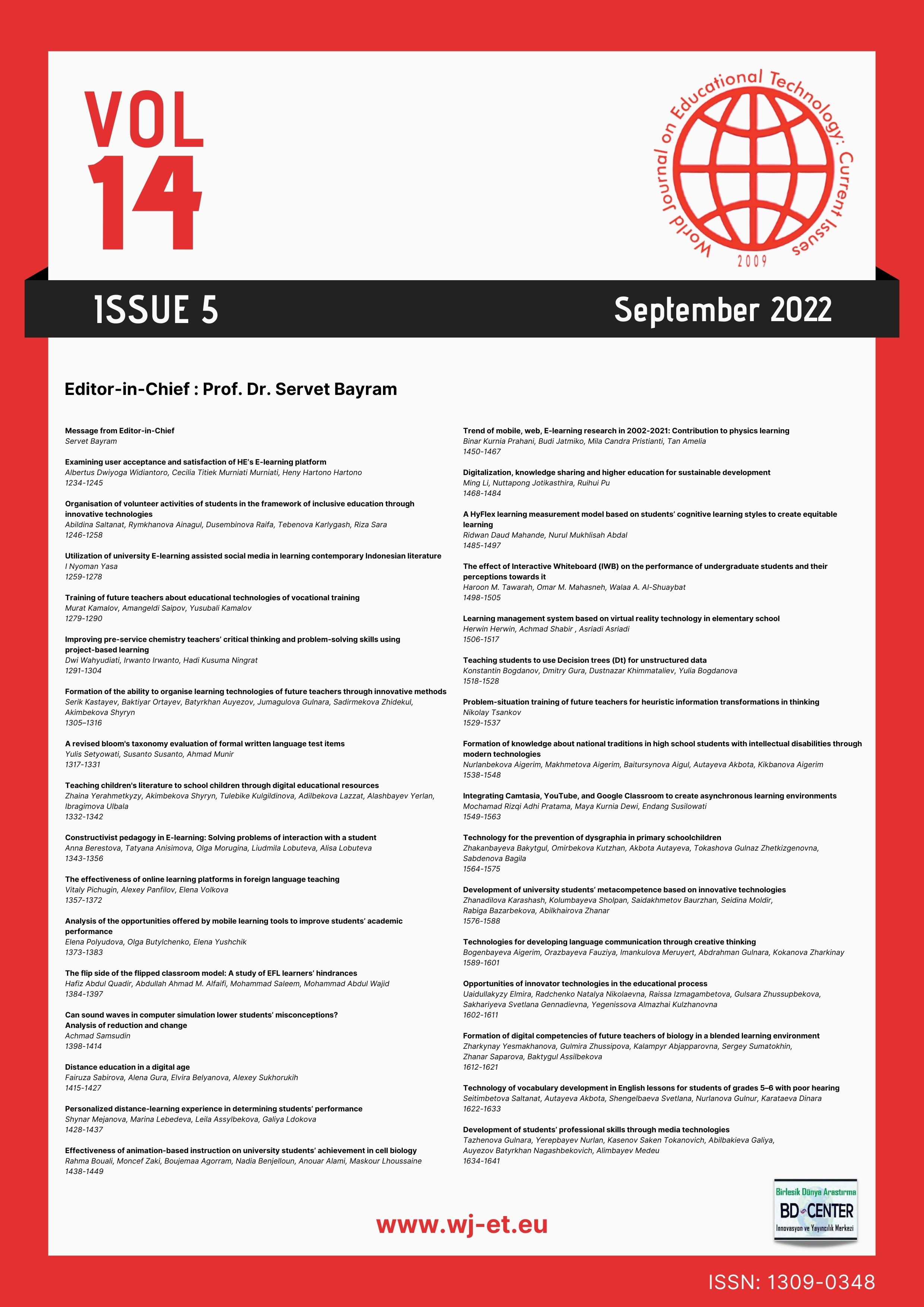The effect of Interactive Whiteboard (IWB) on the performance of undergraduate students and their perceptions towards it
Main Article Content
Abstract
Interactive Whiteboard (IWB)captured the interest of faculty members in view of facilitating the teaching process at universities through stimulating dialogue and discussion during the lecture in addition to attracting students’ attention and concentration throughout the lecture. For the purpose of identifying the contribution of the IWB in improving students' performance; a comparison between the scores in the IWB exams and retrieval exercises with their scores in the exams of three semesters taught through traditional lectures for a Vocational Education Technology course alongside with evaluating questionnaires for the students' perception. It was revealed that students' performance in the IWB exams was in general better than in conventional lectures. The two researches used the Empirical Researchmethod for a study sample of (64) students where the results concluded that students who used the IWB in their lectures excelled in comparison with the performance of the conventional lectures students; they also diplayed positive feedback about the use of IWB in teaching.
Keywords: Interactive Whiteboard (IWB), Vocational Education Technology.
Downloads
Article Details

This work is licensed under a Creative Commons Attribution 4.0 International License.
World Journal on Educational Technology: Current Issues is an Open Access Journal. The copyright holder is the author/s. Licensee Birlesik Dunya Yenilik Arastirma ve Yayincilik Merkezi, North Nicosia, Cyprus. All articles can be downloaded free of charge. Articles published in the Journal are Open-Access articles distributed under CC-BY license [Attribution 4.0 International (CC BY 4.0)].
Birlesik Dunya Yenilik Arastirma ve Yayincilik Merkezi (BD-Center)is a gold open-access publisher. At the point of publication, all articles from our portfolio of journals are immediately and permanently accessible online free of charge. BD-Center articles are published under the CC-BY license [Attribution 4.0 International (CC BY 4.0)], which permits unrestricted use, distribution, and reproduction in any medium, provided the original authors and the source are credited.
